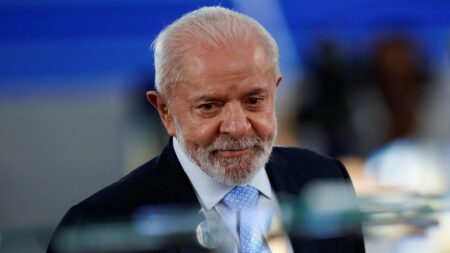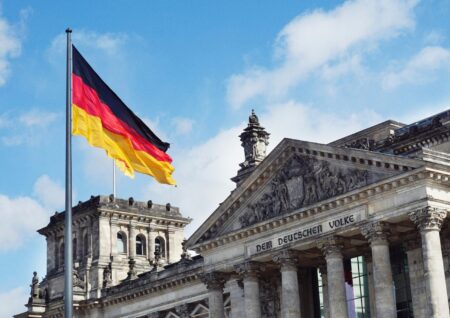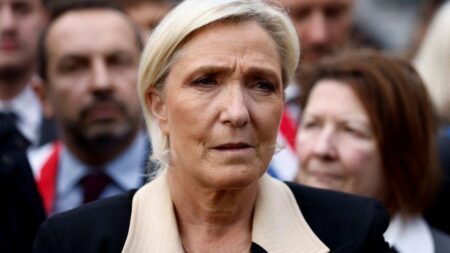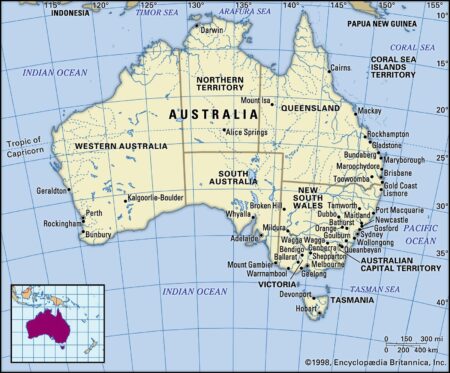Once heralded as the world’s most popular politician, Brazilian President Luiz Inácio Lula da Silva is now grappling with a significant drop in approval ratings. Critics point to economic struggles and rising inflation as key factors in this decline.
Browsing: elections
As Australia gears up for its elections, voters will encounter an old-school voting process featuring blindfolds and wooden balls. This analog approach sparks intrigue, reigniting discussions about tradition versus modernity in electoral practices.
In a significant shift in German politics, the far-right Alternative for Germany (AfD) has topped the polls for the first time, posing a challenge to Chancellor-in-waiting Friedrich Merz. This development signals rising support for nationalist sentiments amid national debates.
The Alternative for Germany (AfD) has surged to prominence, becoming the country’s most popular party amid rising concerns over immigration and economic instability. Analysts attribute this momentum to a growing discontent with traditional political parties and their handling of pressing issues.
The recent court verdict against Marine Le Pen has sparked outrage among far-right factions in France and beyond. Supporters claim the ruling exemplifies political bias, while critics view it as a critical step towards accountability for populist leaders.
As Australia prepares for its next federal election, the process of selecting a prime minister will revolve around voter sentiment, party leadership contests, and key issues like climate change and the economy, shaping the nation’s political landscape for years to come.
In a recent clash of ideals, former President Donald Trump appears to overshadow Argentine libertarian leader Javier Milei in the battle for right-wing populism. Analysts suggest Trump’s robust influence may shape global conservative narratives, potentially sidelining Milei’s unique agenda.
Former Brazilian President Lula da Silva, once a champion of the working class, faces growing criticism and disillusionment among his base amid rising economic challenges and unfulfilled promises. This shift raises questions about his political viability.
As Germany’s political landscape shifts rightward, experts from the Atlantic Council analyze the implications of the recent election results. They delve into how this trend could reshape Germany‚Äôs domestic policies and its role in the European Union.
Germany’s upcoming election promises to significantly influence Europe’s stance toward a more assertive Trump administration. As voters head to the polls on Sunday, the future of key policies on transatlantic relations and global cooperation hangs in the balance.
In the latest episode of The Guardian podcast, experts discuss whether Spain can leverage immigration as a critical electoral issue. They explore public perception, political strategies, and the potential for migration to shape future voting patterns.
Germany’s far-right AfD and the Left party have secured sufficient seats to impede amendments to the country’s debt brake, a fiscal rule that limits public borrowing. This development highlights the ongoing political divisions impacting budgetary reforms in Germany.
The recent German election has exposed deep-seated divisions within the country, as parties grapple with issues like immigration and climate policy. Analysts warn that these rifts could redefine German politics and challenge coalition stability moving forward.
Former U.S. President Donald Trump’s remark about allocating “$21 million for voter turnout” has ignited a political controversy in India. Critics allege inappropriate foreign influence on Indian elections, while supporters claim it reflects global interest in democracy.
In a significant political shift, Germany’s Friedrich Merz declared victory for his conservative party as exit polls indicated substantial gains for far-right factions. This outcome reflects a changing electoral landscape and raises questions about future governance.
In the wake of Trump’s unexpected presidency, European leaders are shifting their gaze to Germany’s upcoming election. As concerns about stability and diplomacy rise, many hope that Germany will emerge as a stabilizing force within the EU.
















